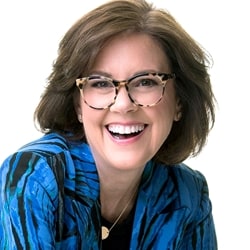Marion Walton points to an interesting and sensible conversation about MySpace between UC-Berkeley PhD student danah boyd and MIT's Henry Jenkins....
In her post, Marion mulls over some related yet compelling issues:
* If calls to restrict access to certain sites (like MySpace) from schools and libraries are successful, would those children who have to rely on public facilities for internet access be at a disadvantage?
Quoting Henry Jenkins: "What a kid can do at home with unlimited access is very different from what a kid can do in a public library with ten or fifteen minutes of access at a time and with no capacity to store and upload information to the web. We further handicap these children by placing filters on the Internet which restrict their access to information which is readily available to their more affluent classmates. And now this legislation would restrict their ability to participate in social networks or to belong to online communities. The result will be to further isolate children from poorer economic backgrounds, to cut kids at risk from support systems which exist within their peer culture, and to limit the social and cultural experiences of kids who are already behind in acquiring important networking skills that will shape their professional futures. All of this will compound what we are now calling the participation gap."
Jenkins suggests that the authors of such laws "are reading MySpace and other social software exclusively in terms of their risks; they are not focusing on the opportunities they offer for education and personal growth. In protecting children from those risks, they would cut them off from those educational benefits."
* So Marion, who teaches at the University of Cape Town, wonders: "Are South African children really missing out on new forms of online cultural capital? To what extent will a lack of knowledge of social networking practices hinder their social mobility? What happens when we replace the idea of a 'digital divide' with the idea of a 'participation gap'?"
Presumably, her concerns would apply to children from any country that doesn't offer the same level of Internet access as most American children have.
* Finally, why are US parents so good at being afraid for all the wrong reasons? ("Remember that these same terrified people happily drive SUVs and vote for G.W. Bush," Marion writes. "What's a greater threat to the future of their children? Some steamy text chat or their current level of carbon emissions?")
Did you like this article?
Know someone who would enjoy it too? Share with your friends, free of charge, no sign up required! Simply share this link, and they will get instant access…
Know someone who would enjoy it too? Share with your friends, free of charge, no sign up required! Simply share this link, and they will get instant access…
Content Articles
You may like these other MarketingProfs articles related to Content:
- The Top 50 US Podcasts in 4Q25 [Infographic]
- 6 Steps to Kill 80% of Your Content
- The Burden of Keeping Up With Content Production [Infographic]
- The Marketing God Complex: How to Use Narrative Responsibly in B2B Marketing
- B2B Thought Leadership Content Trends for 2026
- How Professional Services Marketers Are Approaching GEO




